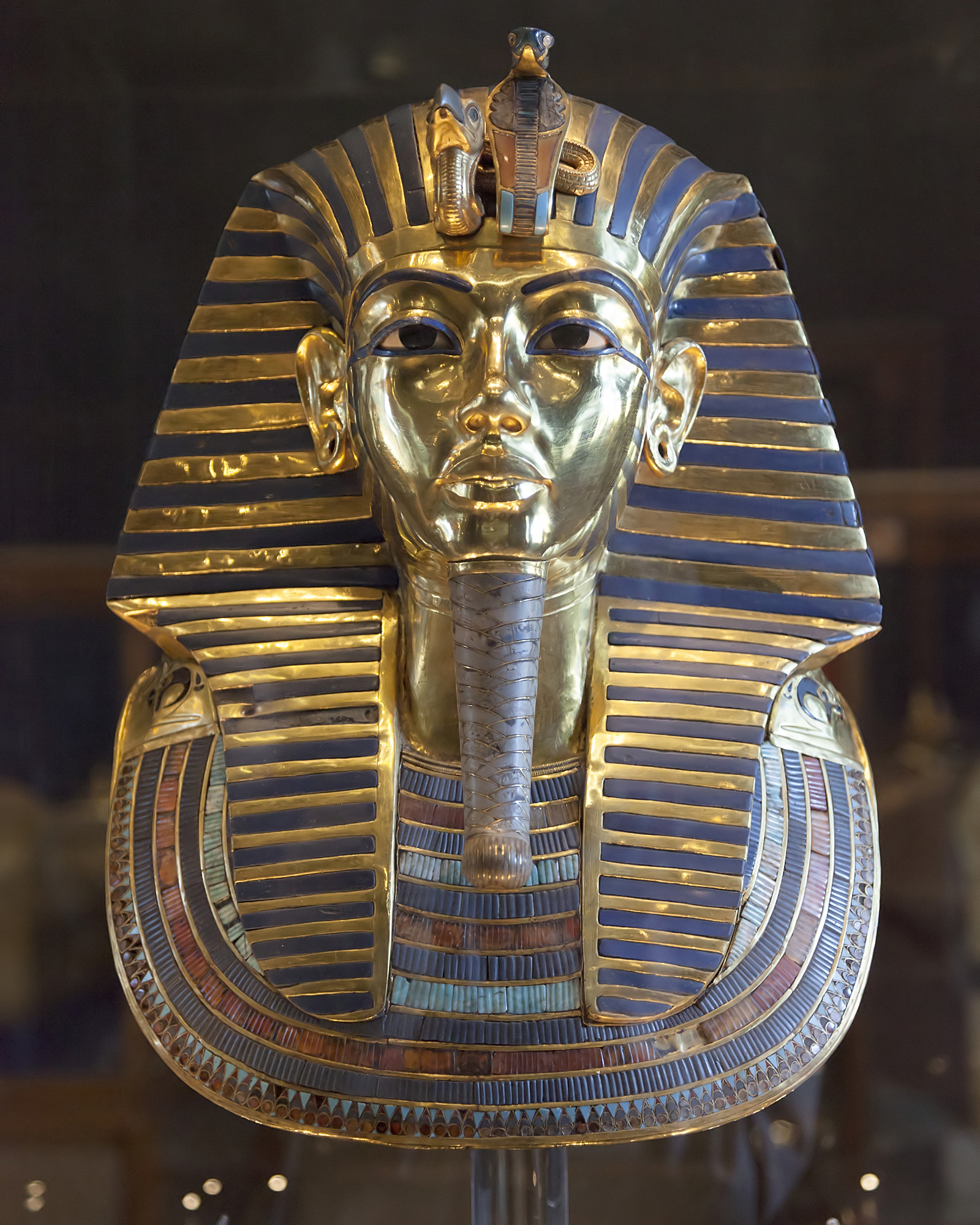"Tutankhamon" is a recently published book in Swedish about the world famous boy-pharaoh Tutankhamun, written by history professor Dick Harrison.
While I generally like Harrison's books, this one could have needed better editing. Often, it comes across as a rambling college lecture about pretty much everything: the Natufians, the Swedish Bronze Age, the Trojan War, Gothic horror fiction, Baroque views of death and dying...and somewhere in there, a chapter actually about king Tut himself (nothing on Afro-centrism or Freemasonry, though).
Although I didn't mind reading rambling books (I've seen crazier ones), somebody looking for a strictly chronological popularized account of Tutankhamun might be excused for being more confused after reading this volume than he was before...
Still, there are some points worth noting. For instance, that the Old Kingdom of Egypt was relatively peaceful. Or that Harrison is unsure about how Egypt became a united kingdom. In standard accounts, Menes (Narmer) from Upper Egypt conquers Lower Egypt, but Harrison seems to believe that *Lower* Egypt was the real cradle of the Egyptian civilization, and that its population was descended from Mideastern Neolithic farmers (this has implications for the Afro-centrist debate). The author also admits that ancient Egyptian chronology is somewhat uncertain.
Harrison is relatively positive towards Tutankhamun's father, the heretical Pharaoh Akhenaten. Instead of being a crazy ruler who left Egypt in shambles, Akhenaten was a powerful monarch with strong military and bureaucratic support (how else could he have smashed the Amun priesthood?). Egypt remained a great power during his reign, and no armed uprising followed his death. On a purely personal level, Akhenaten was a deeply pious man who really believed in his new religion, the exclusive worship of Aten (the sun-disc).
Harrison points out that Ay, one of Akhenaten's successors, also worshipped Aten on a purely personal level - the famous "Hymn to Aten" comes from an inscription in Ay's tomb. Yet, it was Ay who - for reasons of power politics - rehabilitated the old Amun priesthood, making official Egypt polytheist again.
Tutankhamun (originally named Tutankhaten) was simply a powerless child and teenager, controlled by Ay. He died young and was hurriedly buried in a very small tomb in the Valley of Kings, a tomb originally intended for a non-royal person. When Ay's successor Horemheb systematically destroyed all traces of Akhenaten's religious reforms, Tutankhamun's name was also wiped out from Egyptian history.
In effect, Tutankhamun became a non-person. Due to various vicissitudes of history, the entrance to his tomb was buried and forgotten.
Until 1922, when Howard Carter finally discovered and opened the tomb, revealing all its treasures. Every other tomb in the Valley of Kings was thoroughly ransacked by grave-robbers already in ancient times.
It's a strange historical irony that the least important Egyptian Pharaoh has become a household name, thousands of years after his death. Harrison begins the book by quoting Shelley's famous poem "Ozymandias", about a powerful ancient ruler who ends up completely forgotten. I don't know if there is such a thing as a "curse of the mummy", but Tutankhamun has at least managed to defeat the curse of Ozymandias...

Dick Harrison är ett fenomen. Om han fortsätter så här har han väl snart gett ut nästan lika många böcker som Enid Blyton. (Inga jämförelser i övrigt).
ReplyDeleteVet inte om Tutankhamun verkligen var den mest betydelselösa faraon. Det var ju ändå under hans period som den gamla polyteismen kom tillbaka - även om det väl inte var hans förtjänst.
Skrev mycket kort om honom här. https://kiremaj70.blogspot.com/2009/11/kuriosa-tutankhamuns-grav.html
I det inlägg som jag länkade till skrev jag- "Men det var ändå han som avskaffade Echnatons bisarra och storhetsvansinniga monoteistiska Atonkult."
DeleteNja, men han var ändå den som regerade när Atonkulten avskaffades - och rent formellt torde beslutet ha tagits av honom.
Dick Harrison måste nästan börja skriva om riktigt obskyra ämnen, vad sägs om Albanien under Enver Hoxha, det vore en utmaning, eller Karl XIII:s esoteriska frimureri, eller mormonsk polygami, ja, möjligheterna är närmast oändliga! 👽
ReplyDeleteTänk om jag hade fått 1 mille för att skriva 25 böcker, oj, oj, oj... 😃
ReplyDeleteÅh nej, kolla på World Socialist Web Site, de kör "Security and the Fourth International" igen!
ReplyDelete